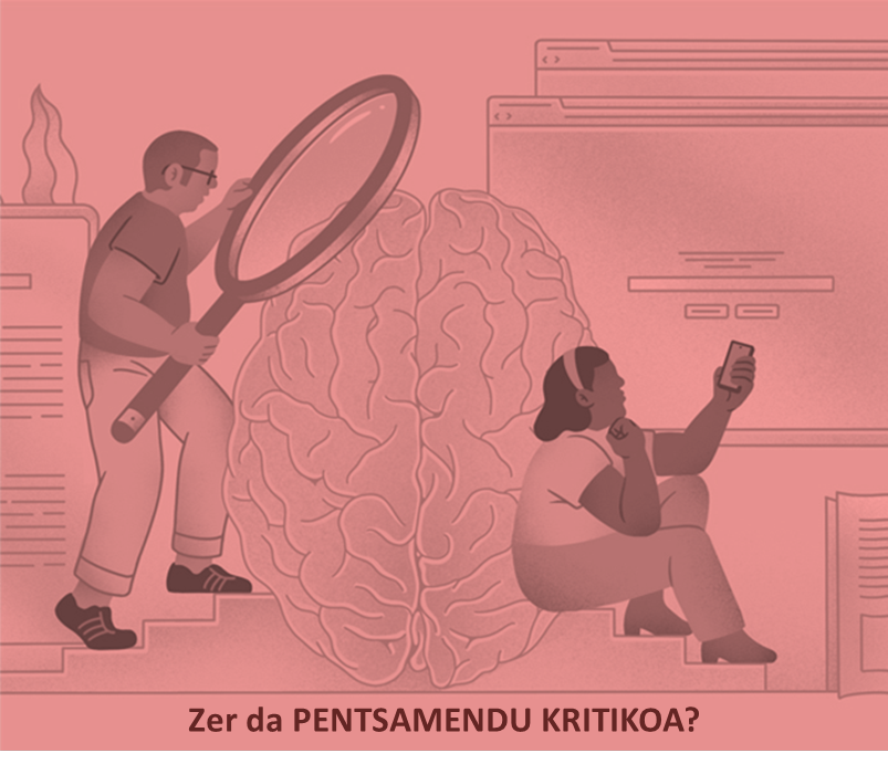Critical thinking during info-demia
Published in Berria on 4 December 2020
This is what Agustín Arrieta Urtizberea says in the interview conducted by the magazine Elhuyar: "Critical thinking is the ability to question our beliefs. It is uncomfortable because it requires an effort. The most comfortable thing is to constantly feed your beliefs».
The current situation demands a special effort, since at the same time the fear of becoming infected, the uncertainty regarding the future, the continuous flow of information and scrublands, the limits and the norms... Who to believe?
With the aim of contributing to this, Elhuyar has published a decalogue of critical thinking. Among other things, it proposes to question one's own convictions and those of those who have some authority, to make more of a hypothesis, to be careful with fallacies, to rely on the scientific method, and to distinguish between faces news or scrubs in the flood of information and to act with responsibility.
This excess of information is also known as infodemia. The World Health Organization became the official term in spring and, in addition to warning of the danger it entails, offered advice to reduce its harmful effects. Among these conclusions was cited the damage to physical and mental health, the increase in stigmatization and the rupture of attitudes contrary to the norms.
Subsequently, some governments, including Spanish, have created control systems to avoid dissemination through the news media that they consider false and harmful. However, this type of measures provoke great uncertainties and, for the moment, it does not seem that they have been very effective, since the emission of this type of news has not diminished.
It does not help much that some news from the scientific-technological environment are closer to propaganda than to objective data. The publication (preprint), prior to its analysis by independent researchers, has become a common practice and, in recent times, news about vaccines of covid-19 have come from the hands of pharmaceutical companies and as press releases before being confirmed by independent researchers, scientific publications and regulatory bodies.
There are many scientists who have criticized these trends and a debate has been opened on how to balance the deadlines that science needs and the urgency of responding to the emergency situation. It would be important for society to participate in this debate: what to investigate, what objectives, for whom, how and what to count, when. To this end, transparency and an empowered society, capable of thinking critically, of asking.
As Arrieta recalled, losing objectivity and respect for epistemic values is very dangerous: it is the door to manipulation and totalitarianism when it comes from the hand of conformism.






